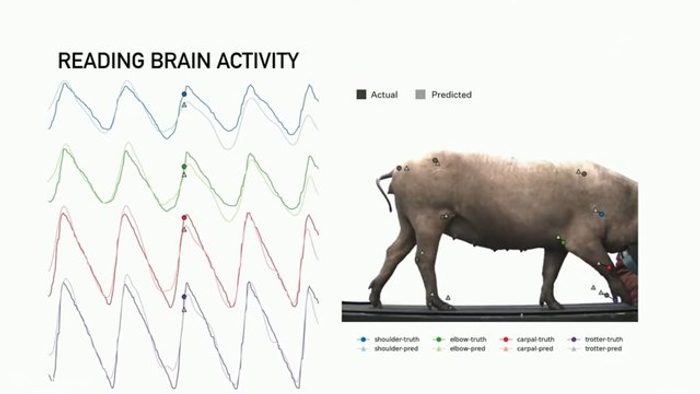Morning all, this is Kasmira at Geneva Solutions and for today's edition, we're thrilled to have caught up with former Swiss President Micheline Calmy-Rey.
A professor at the University of Geneva with many projects on the go, Calmy-Rey is now spearheading the new Geneva-Zurich Center for Science and Diplomacy accompanied by GESDA and developed by the University of Geneva and ETH Zurich.
We talked about the future of science in conflict resolution - one where AI could play a bigger role. |
|
Anticipatory reads by GESDA
|
|
|
The CEO of Neuralink, Elon Musk,
hit the headlines some days ago when the latest neural implants developed by the firm and fitted on a pig’s brain were introduced. Recently, in a private discussion, founder of competitor Kernel, Bryan Johnson, assured me that such implants will be something ordinary in brain surgery within more or less two years!
Whether true or not, one thing is certain: the technology is here and might one day “change humanity”, as the New York Times puts it. All this, taking more broadly the convergence between AI and neurotechnology into consideration, underlines the urgency to address the ethical questions. That is what the OECD is trying to nurture with its Recommendation on Responsible Innovation in Neurotechnology report.
– Olivier Dessibourg, GESDA
(EN)
|

Predicting pig movement based on brain signals | Neuralink
|

This selection is proposed by the Geneva Science and Diplomacy Anticipator
GESDA, working on
anticipating cutting-edge science and technological advances to develop innovative and inclusive
solutions for the
benefit of the planet and its inhabitants.
|
|
GESDA, and the reason for anticipation
|
|
|
Humanity
is facing more than ever global challenges (with regards, e.g., to the COVID-19 crisis), putting people and the planet under stress and in great uncertainty. Simultaneously, the world is experiencing breakthroughs in science and technology at an unprecedented pace, sometimes hard to grasp. Anticipation is therefore key to build the future with the aim to early and fully exploit this scientific potential for the well-being and inclusive development of all. The Geneva Science and Diplomacy Anticipator has been founded in Geneva in 2019 to tackle this issue.
GESDA's ambition is first to anticipate and identify these cutting-edge science and technology advances in various domains (Quantum revolution & advanced AI, Human augmentation, Ecoregeneration and Geoengineering, Science and Diplomacy). Then, based on this panoramic scientific outlook, it will translate those potential sci&tech leaps into tools to develop effective and socially inclusive solutions to emerging challenges. Most importantly, this process will be achieved not only by scientists or technologists, but will include actors of various other professional origins and mindsets (diplomacy, philanthropy, industry, citizens, youth).
|
|
|
GS news is a new media project covering the world of international cooperation and development. Don’t hesitate to forward our newsletter!
Have a good day!
|

|
|
Avenue du Bouchet 2
1209 Genève
Suisse
|
|
|
| |









